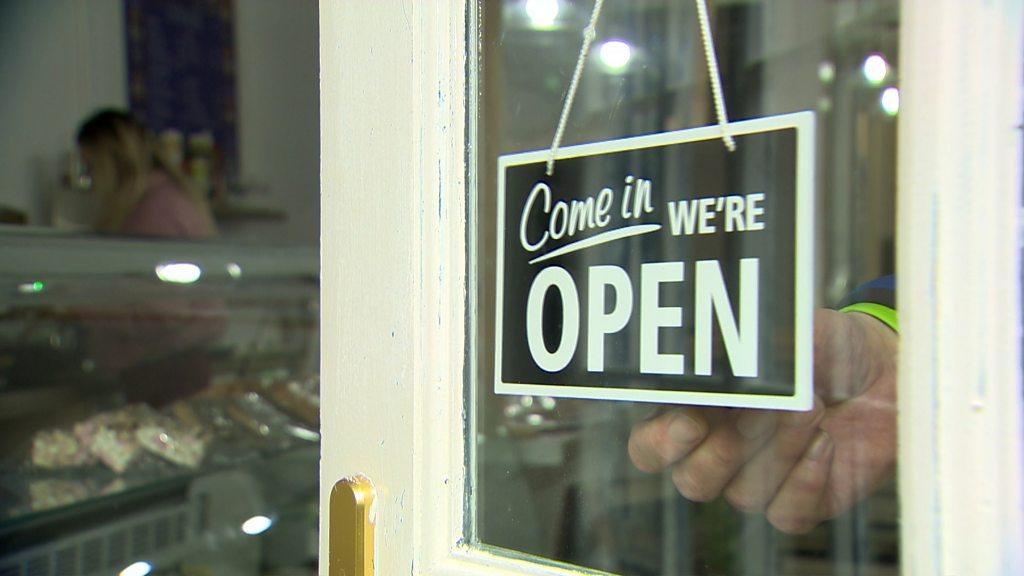Coronavirus: A 'double-whammy' of restrictions for border businesses
- Published
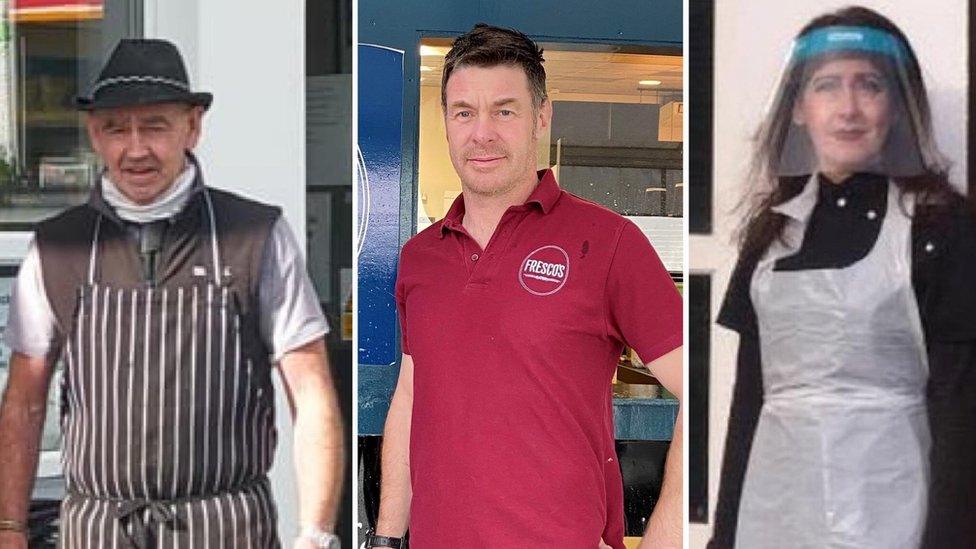
Businesses owners reliant on cross-border trade feel they are being financially disadvantaged on two fronts
Businesses along the border between Northern Ireland and Donegal say they are feeling the effects of a "double-whammy" of coronavirus restrictions.
Further restrictions were introduced in Derry and Strabane council area last week, while County Donegal remains under level-three restrictions.
Businesses reliant on cross-border trade feel they are being financially disadvantaged on two fronts.
Business owners told BBC News NI how restrictions are impacting trade.
Some enterprises on both sides of the Irish border feel that current localised restrictions and restrictions on border travel are hindering their ability to trade during the pandemic.
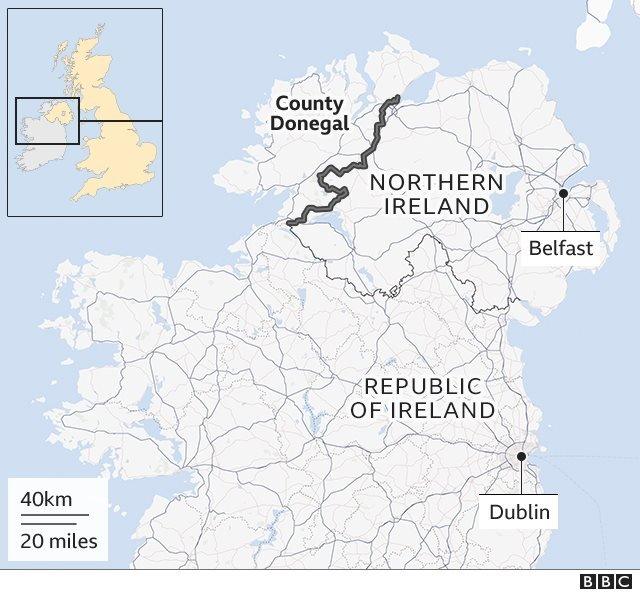

The chief medical officers from Northern Ireland and the Republic of Ireland advise against all but necessary travel across the NI-Donegal border due to a recent spike in cases in the region.
Some 132 Garda (Irish police) checkpoints were set up across the Republic of Ireland on Wednesday to help curb the rising number of coronavirus cases in the country.
The checkpoints are to encourage people to remain in their own counties and to only undertake essential journeys.
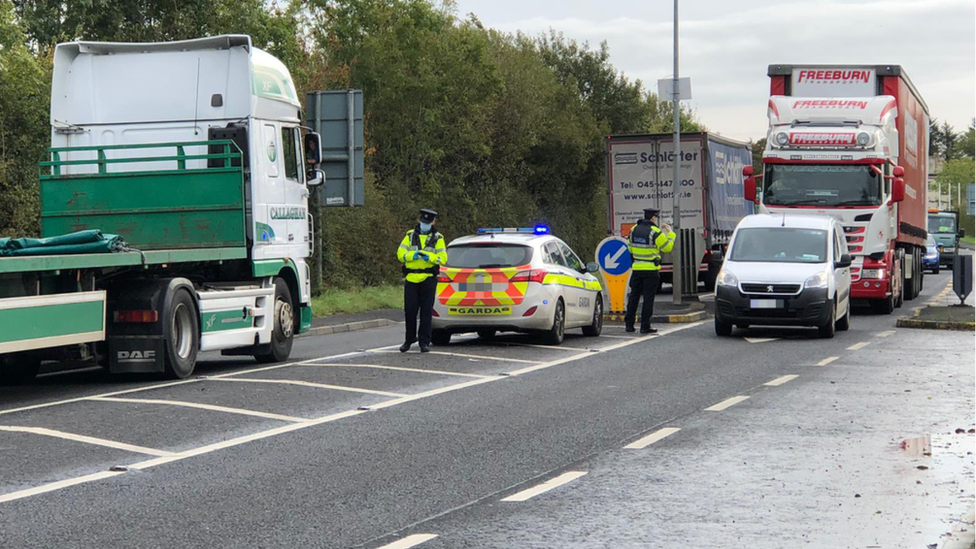
Operation Fanacht aims to help curb the rising number of Covid-19 cases the Republic of Ireland
Derry City and Strabane District council area currently has the highest rate of cases per 100,000 in the UK. Across the border, Donegal became in September one of the first Irish counties, along with Dublin, to be placed under level three restrictions in the country's five-level alert system, following a rise in cases.
Cross-border income 'now zero'
The effect on businesses near the frontier, which often rely on cross-border trade - is stark.
Strabane café owner Trevor Mealiff's Café Fresco could have to close if coronavirus restrictions continue.
The business is losing £2,000 a week as a result of Derry and Strabane's tighter measures, he told BBC News NI.
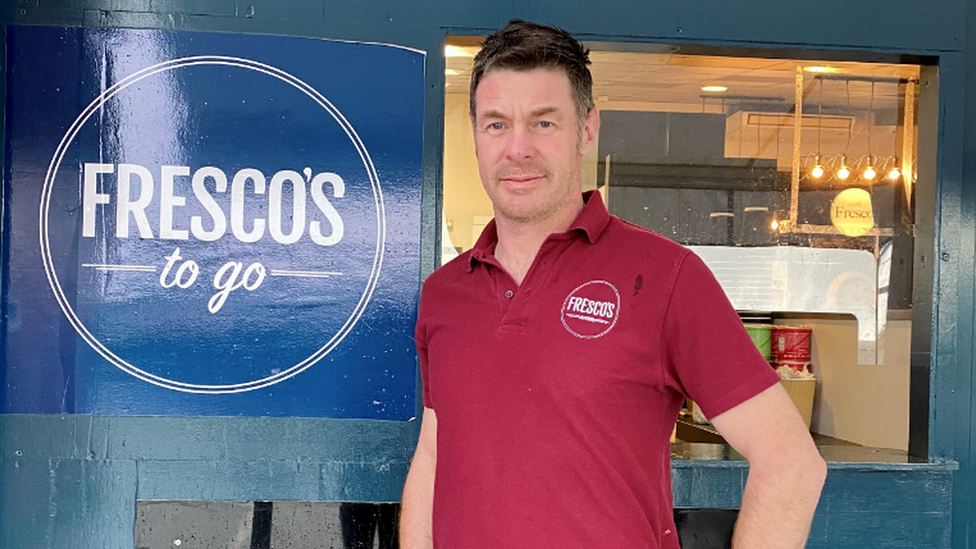
Trevor Mealiff is not sure whether his coffee shop will survive the pandemic restrictions
The restrictions imposed in County Donegal have all but ended cross-border trade, with customers from across the border usually making up a large portion of his clientele, said Mr Mealiff.
"We would always have done quite well out of Donegal, a good 20-25% of our income, which has now just went to zero," he told BBC Radio Foyle.
The 100-seater café is now closed to sit-in customers, but offers a take-away service on Fridays, Saturdays and Sundays.
But that may not generate enough income to keep the business going without financial support from the Stormont government.
"There is no way we are going to make up enough to survive," said Mr Mealiff.
"We are going from being open 70 hours a week to about 20 hours."
Allow X content?
This article contains content provided by X. We ask for your permission before anything is loaded, as they may be using cookies and other technologies. You may want to read X’s cookie policy, external and privacy policy, external before accepting. To view this content choose ‘accept and continue’.

Checkpoints 'bad for business'
Across the border in Donegal, the police checkpoints have deterred many long-standing customers coming from Northern Ireland.
"I don't want them [checkpoints] because I have a lot of customers across the border in Derry," said butcher Thomas McColgan in the border town of Muff.
"We have a lot of people crossing the border every week who come and get their meat, people who have been coming here for maybe 20 to 25 years," said Mr McColgan.
"Muff is part of Derry and Derry is part of Muff, in my opinion.
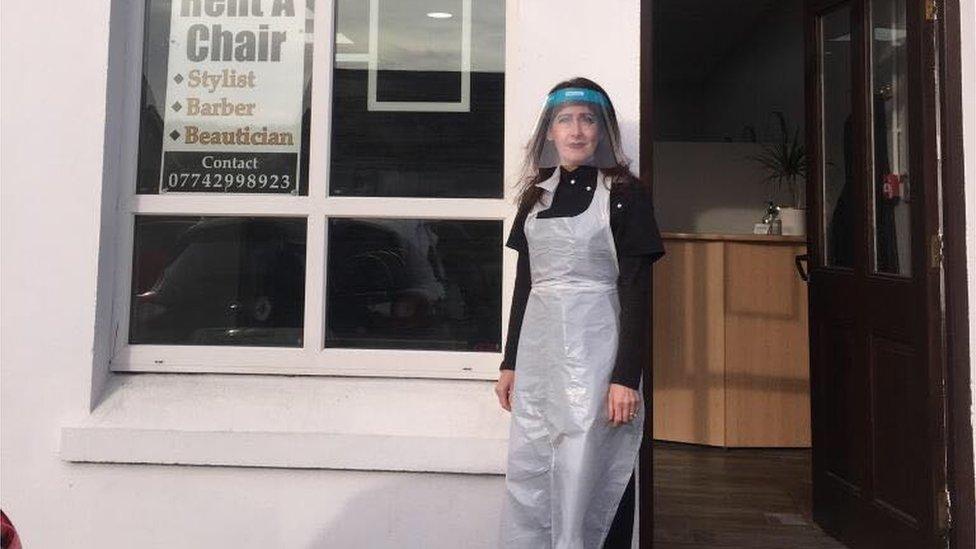
Marguerite Glenn says the tightened restrictions could spell the end for her new salon
An owner of a newly opened hairdressers on the main street of the Irish village has described the new restrictions and checkpoints as "disastrous" for her business.
"I have worked in the north here for years and I have just opened six or seven weeks ago and most of my clientele would be coming from the north," said Marguerite Glenn.
"I don't think this is going to work out well for me at all."
Mrs Glenn introduced a number of coronavirus safety measures in her salon, and does not understand why people from Northern Ireland should not be able to visit.
"I understand they want to keep the infections down, but I just don't understand how stopping people [from Northern Ireland] from getting their hair done, with all the safety measures we have in place will change that."
- Published1 October 2020
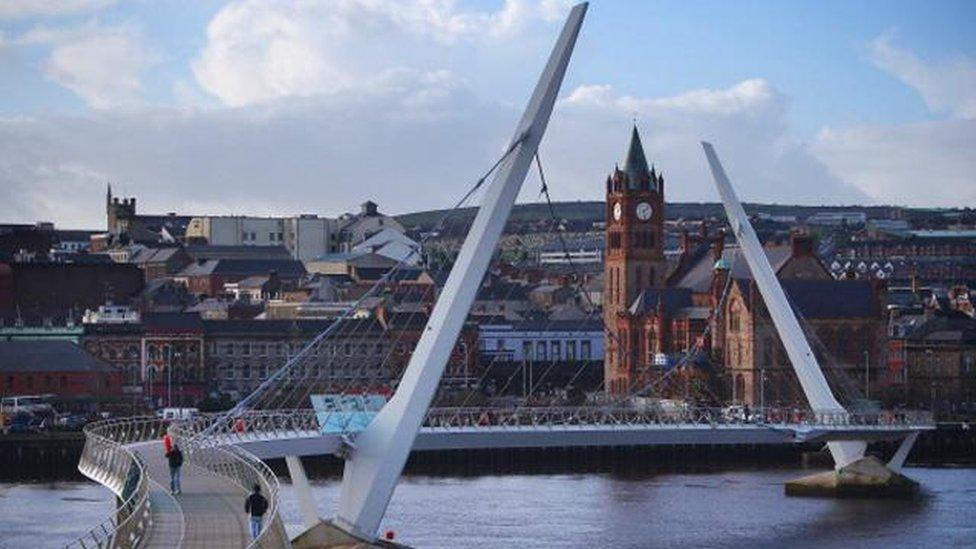
- Published1 October 2020
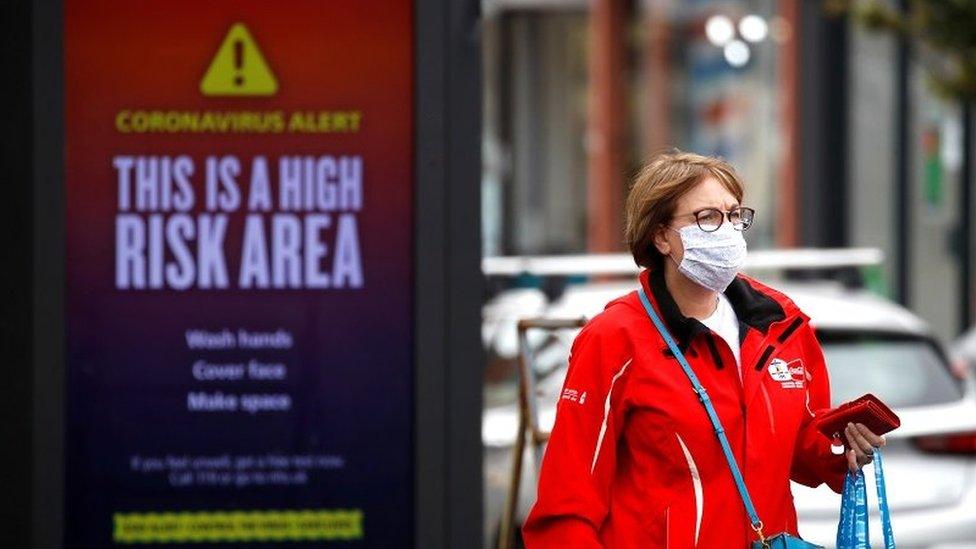
- Published5 October 2020
